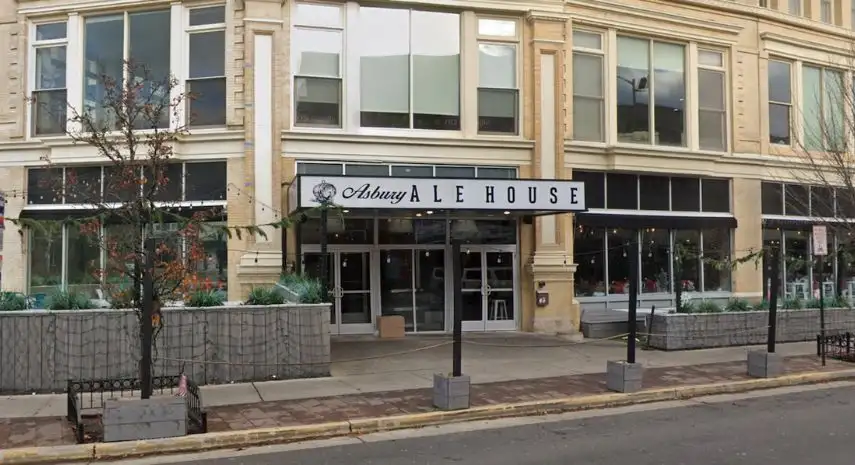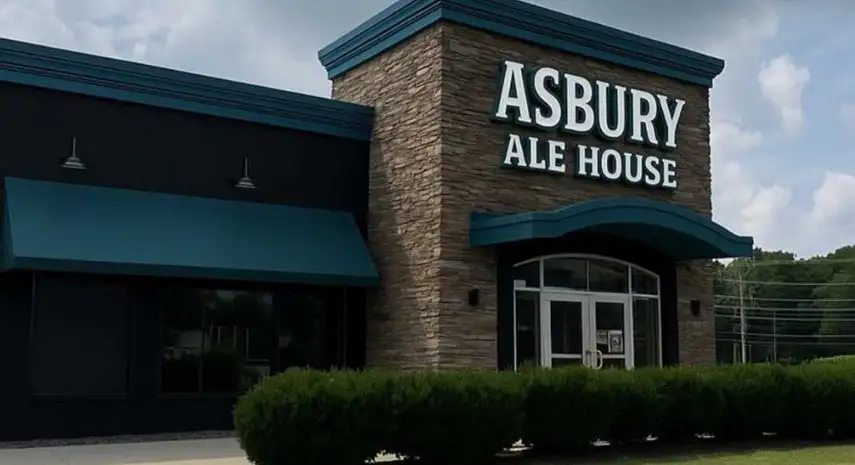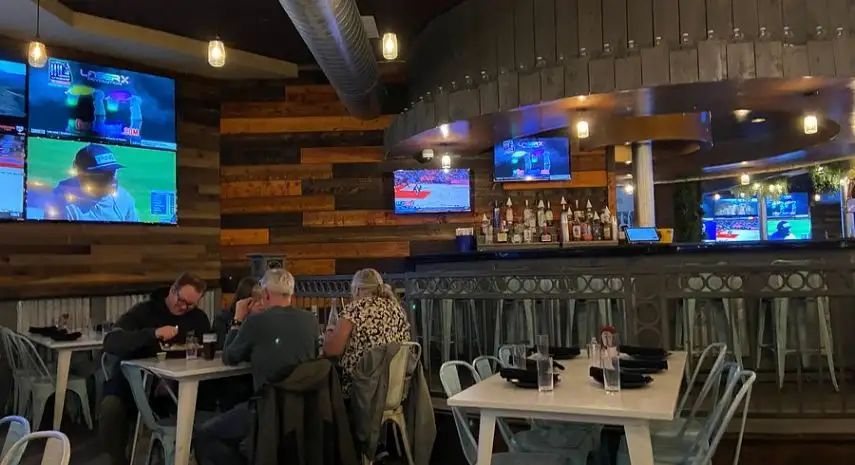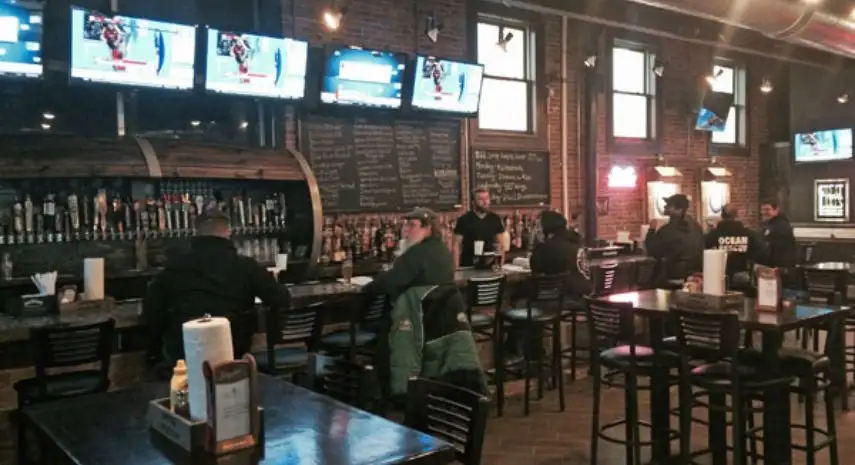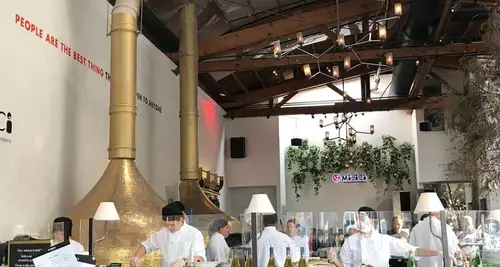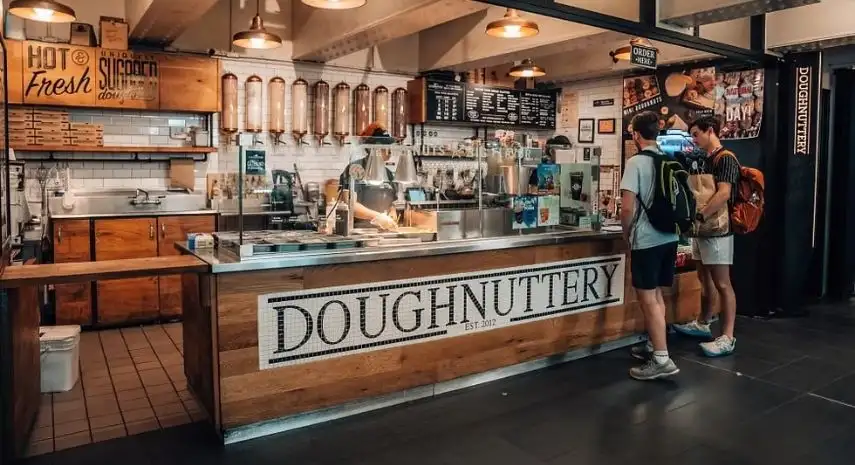Established
2015
Franchise Units
5
Minimum Investment
$500,000
Franchise Fee
$50,000
Total Investment Range
$2,500,000
Home Based
No
Description
Asbury Ale House is a dynamic sports bar and gastropub that has redefined the American tavern experience since its inception in 2015. Originating in Asbury Park, New Jersey, the brand has swiftly expanded, earning a reputation for its vibrant atmosphere, extensive beer selection, and innovative cuisine. With a commitment to quality and community, Asbury Ale House offers franchisees a unique opportunity to be part of a growing brand in the competitive food and beverage industry.
Why Invest in this Franchise?
-
Proven Business Model: Asbury Ale House has demonstrated consistent growth and profitability, establishing a strong brand presence in the Northeast and expanding into new markets.
-
Comprehensive Support: Franchisees receive extensive training and ongoing support in operations, marketing, and management, ensuring a smooth and successful business journey.
-
High Customer Loyalty: The brand's focus on quality service, diverse menu offerings, and community engagement fosters a loyal customer base, leading to repeat business and positive word-of-mouth.
-
Scalable Expansion: With multiple locations already established and more in development, Asbury Ale House presents a scalable model for growth in various markets.
Background
Established Year: 2015
Founders: Matthew Gullace and the Gullace family
Company History & Brand Journey:
Asbury Ale House was founded in 2015 in Asbury Park, New Jersey, by the Gullace family, who brought decades of experience in hospitality and restaurant management. The brand was created to fill a niche in the casual dining market: a modern sports bar and gastropub that combines high-quality food and beverages with a lively, community-focused atmosphere. From its original flagship location, the Ale House quickly became a local favorite, celebrated for its extensive craft beer selection, inventive menu, and vibrant sports bar environment.
The brand's journey has been marked by selective expansion into other U.S. markets. Notable developments include:
-
Toms River, New Jersey: Expanding within New Jersey to capture a broader regional market.
-
Fort Lauderdale, Florida: A location on the Riverwalk, although it has since closed, illustrating the brand’s selective approach to market expansion.
-
Jersey City, New Jersey: A planned new location at 143 Newark Avenue, demonstrating continued growth in key urban centers.
-
Philadelphia, Pennsylvania: Expansion plans in the metropolitan area, aiming to leverage the strong sports bar and gastropub market in the region.
Ownership: Privately held by the Gullace family, maintaining full control over strategic decisions, quality standards, and franchise selection.
Franchise Units: While the exact number of operating franchise units is not publicly disclosed, the brand has several established locations and continues to plan selective expansions across the U.S.
Market Presence: Primarily focused in New Jersey with strategic expansion into other states, Asbury Ale House positions itself as a premium sports bar and gastropub with a strong reputation for quality, atmosphere, and community engagement.
Industry Category: Casual dining, sports bar, and gastropub
Other Information:
-
Known for hosting live events, sports viewing parties, and community gatherings.
-
Strong emphasis on local sourcing of ingredients and craft beers.
-
Combines casual dining with a vibrant, social environment, appealing to a broad demographic, from young professionals to families.
Support Training
Asbury Ale House offers comprehensive support and training to ensure franchisees can successfully operate their units and maintain the high standards associated with the brand. The support is structured across multiple phases:
1. Pre-Launch Support
-
Site Selection & Lease Negotiation: Assistance in identifying prime locations with high foot traffic, visibility, and target demographics. Guidance in negotiating favorable lease terms.
-
Design & Build-Out: Support in designing the layout, décor, and ambiance consistent with the Asbury Ale House brand. Includes recommendations for furniture, fixtures, and signage.
-
Permits & Licensing Guidance: Help navigating local regulations, health department requirements, and liquor licensing.
-
Grand Opening Planning: Strategies for a successful launch, including initial marketing campaigns, local promotions, and public relations support.
2. Operational Training
-
Comprehensive Onboarding: Franchisees and their management teams receive in-depth training on all operational aspects.
-
Kitchen & Food Operations: Training on menu preparation, food safety standards, inventory management, and portion control.
-
Front-of-House Management: Customer service protocols, staff training, point-of-sale systems, and daily operational procedures.
-
Supply Chain & Vendor Management: Guidance on sourcing ingredients, beverages, and supplies at competitive prices without compromising quality.
3. Marketing Support
-
Brand Marketing Materials: Access to professionally designed advertising templates, signage, and digital marketing assets.
-
Local Marketing Campaigns: Assistance in planning and executing targeted campaigns for the local community, including events, social media, and promotions.
-
National Marketing Initiatives: Support from the corporate team on seasonal campaigns, brand awareness, and special events to attract a wider audience.
4. Ongoing Support
-
Operational Guidance: Continuous support from corporate staff through regular check-ins, performance assessments, and operational reviews.
-
Training Updates: Periodic updates and refresher courses for franchisees and staff to stay aligned with best practices and menu innovations.
-
Technology Integration: Assistance with POS systems, inventory management, and analytics to streamline operations and enhance profitability.
-
Problem-Solving & Advisory: Expert advice on challenges related to staffing, local market conditions, or operational efficiency.
5. Academic & Industry Knowledge
-
Workshops & Seminars: Access to industry insights, trends, and operational workshops to maintain competitive edge.
-
Franchise Network Collaboration: Opportunities to learn from other franchisees, share best practices, and leverage collective knowledge for business growth.
Ideal Candidate
Asbury Ale House seeks franchisees who are not only financially capable but also share the brand’s passion for hospitality, community, and quality dining experiences. The ideal franchisee possesses a combination of business acumen, leadership skills, and a customer-focused mindset. Key characteristics include:
1. Business Background
-
Experience in Hospitality or F&B: Individuals with prior experience in restaurant management, bar operations, or casual dining establishments are highly suited.
-
Entrepreneurial Skills: Experience in running a business, handling budgets, and making strategic decisions is valuable.
-
Operational Knowledge: Familiarity with inventory management, staffing, and day-to-day operations ensures smoother business execution.
2. Passion & Personal Traits
-
Hospitality-Oriented: A genuine enthusiasm for providing excellent customer service and creating memorable experiences for guests.
-
Community Engagement: Interest in building relationships with local communities, hosting events, and participating in community initiatives.
-
Leadership Abilities: Strong people management skills to motivate staff and maintain a high-performing team.
-
Adaptability & Problem-Solving: Ability to handle challenges in a fast-paced environment, adapt to market trends, and respond effectively to operational issues.
3. Investment Capability
-
Financial Resources: Adequate capital to cover initial investment, working capital, and ongoing operational costs.
-
Long-Term Commitment: Willingness to invest time and effort to grow the franchise over the long term.
4. Location Preference
-
High-Traffic Areas: Ideal candidates are interested in establishing franchises in urban centers, entertainment districts, or locations with strong footfall.
-
Community-Oriented Markets: Areas where the brand can cultivate a loyal customer base through events, sports viewing, and community involvement.
5. Entrepreneurial Mindset
-
Growth-Oriented: A proactive approach to business development, exploring revenue streams like catering, private events, and merchandise sales.
-
Brand Ambassador: Passionate about upholding the Asbury Ale House brand image and ensuring consistent service quality across all customer touchpoints.
Financial Detail
| Financial Item | Estimated Amount / Range | Notes |
|---|---|---|
| Total Investment Required | $1,500,000 – $2,500,000 | Includes build-out, equipment, inventory, marketing, and training |
| Minimum Liquid Capital | $500,000 | Cash or accessible funds to cover start-up and initial operations |
| Franchise Fee | $50,000 | One-time fee for franchise rights and initial support |
| Infrastructure / Build-Out | $800,000 – $1,500,000 | Leasehold improvements, kitchen/bar equipment, furniture, décor |
| Marketing Budget | 2–4% of gross sales | Supports local and national marketing campaigns, including grand opening |
| Working Capital | $150,000 – $300,000 | Covers staff salaries, utilities, inventory, and operational expenses |
| Royalty Fee | ~5% of gross sales | Ongoing fee for brand support, training, and corporate resources |
| Expected ROI | 2–3 years | Depending on location, market conditions, and operational efficiency |
| Break-even Time | 18–24 months | Estimated time to cover initial investment and reach profitability |
| Revenue Streams | Dine-in, takeout, catering, merchandise, events, delivery | Multiple sources to maximize revenue and profitability |

